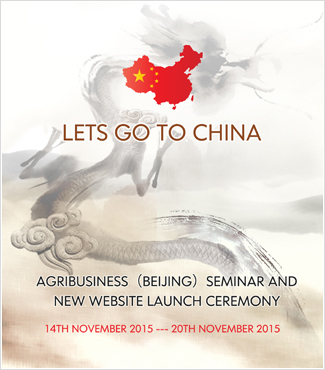FTA with China Bring About More Trade for NZ Goods
Author:News Creat time:2015-09-29 17:52

WELLINGTON -- As a sales manager and marketing director of a famous New Zealand winery, Martin Tutty had never thought that he would need to come to China so many times a year.
Martin's story, however, has also become a common experience of his Kiwi peers.
Since China and New Zealand signed Free Trade Agreements (FTAs) in 2008, the Chinese market is regarded by the former as an important business engine. As such, Martin currently spends three or four months a year in China, dealing with local distributors in numerous Chinese cities.
Doing business in a market far away from home, New Zealand exporters must adapt to many unfamiliar circumstances in China, such as cultural differences, regulations and consumers' habits.
For example, New Zealanders love white wine, such as Sauvignon Blanc. However, Chinese customers prefer red wine, which means a whole different marketing strategy must be adopted for the Chinese market.
The process is not easy. "But, it's all worth it," Martin told Xinhua recently.
The winery has set up social media accounts in China, such as Weibo and in doing so maintaining constant interaction with consumers. During his stay in China, Martin talked with sales representatives in different cities and discussed their problems.
"China is more complex than any other market we've dealt with. There are entire categories which don't exist in other countries, such as banqueting and bulk-purchases. But now the pay-off from those years of perseverance is starting to show," Martin said.
Martin and the winery he works for are only a microcosm of trade booming between China and New Zealand after the FTA. Kiwi wine, meat, seafood and honey have now all appeared on the Chinese dining table. Many Kiwi companies have benefited a lot during the process.
Meanwhile, Weiguo Huang and his team are focusing on another challenge. Because of the booming trade, Chinese customers raised questions about the authenticity of Kiwi products. How to prove a food product "Made in New Zealand" and conform to Chinese quality criteria? The answer is a food tracking system.
As president of the New Zealand-China Food Safety Association, Huang and his team cooperate with the Chinese authorities, trying to prove to Chinese customers New Zealand's famous slogan of "100 percent pure."
In the beginning, Huang tried computer chips, which are quite costly.
Fortunately, smartphones provided a solution. A QR code was developed to fully show product information, including its origins and how the products came to be on the shelves of Chinese supermarkets. Anti-forgery ink and other security means also enhanced the tracking system.
With the QR code, a Chinese customer can simply swipe their phone to know which winery a bottle is from, or which farm a meat product is from.
This is just the beginning. Huang said that his team will focus on the transparency of New Zealand products on the Chinese market to secure the reputation of Kiwi food in China.
It began with the FTA. To Martin and Huang, the FTA means more trade, more communication and more economic cooperation.
(Chinadaily.com.cn 2015-03-18 \ The Economic and Commercial Section in Sydney)
